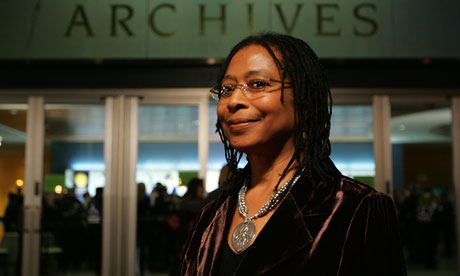
One of the key arguments of Steven Pinker's The Better Angels of our Nature, as illustrated by the Guardian extract, is that the growth of literacy and the recognition of the primacy of reason were the practical catalysts for a huge leap in empathetic feeling. This "humanitarian revolution" underlies the decline of violence since the 18th century, the Enlightenment values developing there directly precipitating a practical commitment to our shared humanity. Fiction makes us see from perspectives that would not otherwise have been available to us, thereby increasing our propensity for compassionate feeling. The more directly the perspective of the protagonist is shared with the reader, the greater the empathy-enabling and compassion-inducing effect: the paradigm is the epistolary novel. Elegant philosophical reasoning can help us to organise our conflicting interests, living autonomous and rational lives in the perpetual peace of Kant's kingdom of ends rather than nasty, brutish and short ones in a Hobbesian state of nature.
This much, as Pinker himself points out, will seem "banal and obvious" to us children of the Enlightenment. What is perhaps less apparent at first glance is the sweepingly elitist nature of Pinker's argument, which has compassion and reason flowing from the educated pinnacle of literary and philosophical achievement towards the masses, or at least that part of them which has time to wade their way through Rousseau's Julie or Kant's Critique of Pure Reason.
It is difficult to argue with the contention that wide literary reading enhances the ability to view human experience from a variety of different perspective (which, as Pinker correctly points out, is not actually the same as the ability to feel compassion). But how varied, in socio-economic terms, are the perspectives offered by 18th or, for that matter, 21st century literature? Realist texts of the 19th century, from Madame Bovary to Anna Karenina, might have provided a new perspective to their male readers, but it was one firmly emanating from the social elite. The great history of the epistolary novel, from Goethe's Sorrows of Young Werther to Lionel Shriver's We Need to Talk About Kevin, remains largely within the confines of the white, educated middle-classes of Europe and North America. Even where the protagonists and indeed the authors stray from this model, such as in Alice Walker's The Color Purple, the authors themselves are, almost by definition, part of the highly educated literary elite.
Pinker's argument is surely, given his views in The Blank Slate, that we need literature to awaken a latent propensity for empathy and compassion rather than to develop one where none exists. It is no controversial statement to say that, in order to be educated, we should look to the educated. But even if what is involved here is the lighting of a fire and not the filling of a pail, the narrow provenance of the encouragement of what is supposed to be a universal human trait will necessarily limit its efficacy.
The same limited social perspective is at work in Pinker's analysis of reason's role in the "humanitarian revolution". Whilst Kant eked out a living as a private tutor for years before success was forthcoming, his perspective is also solidly situated within the steady parade of academic and social luminaries who came to see him in Königsberg. Mutual unselfishness, so Pinker argues, is a rational mode of being because both parties are then better off with regard to the protection of their interests. The realization of the universality of reason pulls us away from the dog-eat-dog world where everyone simply pursues their own advantage. By this rationale, the more interests I have to protect, the greater my motivation to behave unselfishly and the greater, by extension, the basis of my humanitarian attitudes. This is no more a hopeful basis for a universal morality than the contention that your freedom to swing your fist ends where my nose begins. Even Kant, for whom the intrinsic value of human beings is at the centre of his philosophy, sees duty as the best motivator of moral action, and desire or inherent motivation as a poor one. The universality of reason as a humanizing force is not much use to those with few tangible and definable interests to protect.
This is not to say that Pinker's view of Enlightenment values as the basis for a humanitarian revolution is misguided, but rather that this revolution has not genuinely begun. Pinker has humanitarian values emanating from the powerful and educated elites, but, given the rigid social stratification then and now, how could it have been otherwise? Rather than rejecting the basis of Pinker's argument, we should instead understand it as a demand for equality of opportunity in our political, educational and cultural lives. Increasing compassion and declining violence in our own century will rest not only on expanding the ranks of the literate, but of the literary; not only the ranks of those able to appreciate their own autonomy, but those taking part in the political discussion.
Liz Disley is a research associate in the Department of German at Cambridge University, specializing in the philosophy of social relations

